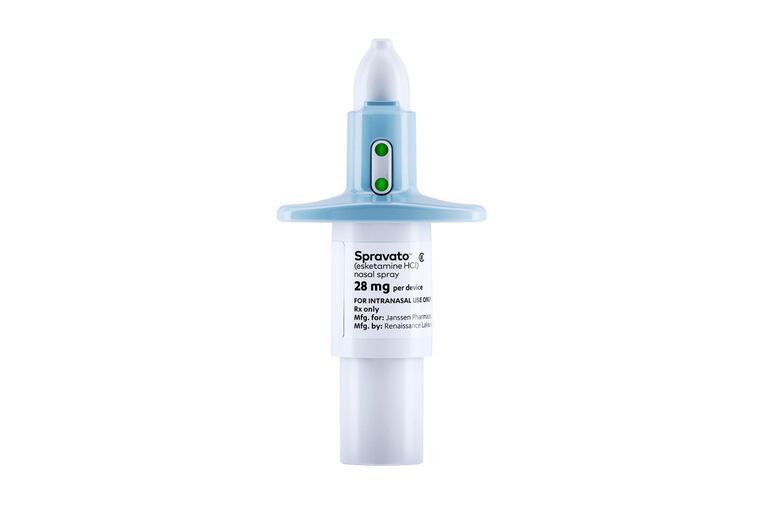J&J’s new esketamine drug for depression, Spravato, not worth the money or the risk, watchdog says
The nasal spray for treatment-resistant depression was called overpriced. ICER also found an absence of long-term safety data.

A novel antidepressant, heralded as a breakthrough drug only two months ago, may not be a cost-effective way of battling treatment-resistant depression (TRD), according to a new study.
Esketamine, a nasal spray, was approved by the Food and Drug Administration in March for people who do not respond to traditional antidepressants. Marketed as Spravato, the drug was subject to eight years of research by Johnson & Johnson subsidiary Janssen Pharmaceuticals.
The drug is a chemical cousin of ketamine, a relatively inexpensive anesthetic that has been prescribed by some psychiatrists as an alternative treatment for intractable depression for several years. The cost of a ketamine infusion is usually not covered by most insurance companies and can run up to $800.
Ketamine often is abused as a hallucinogenic party drug, which hints at why esketamine must be administered in a doctor’s office.
According to the Institute for Clinical and Economic Review (ICER), Spravato may be overpriced for the benefits it delivers.
Each treatment costs $590 to $885.
And that price doesn’t cover the doctor’s time.
When first begun, the regimen requires twice-weekly office visits that can take up to 90 minutes each. Following treatment a patient may not drive a motor vehicle for the rest of day. After four weeks, dosing frequency is reduced to every two weeks or once weekly.
“Even when covered by health insurance, out-of-pocket costs can remain considerable and may prevent access to those who may benefit from esketamine,” the ICER report said. ICER is a Boston-based nonprofit that specializes in evaluating the cost and effectiveness of health care.
A spokeswoman for Janssen Pharmaceuticals said the company disagreed with ICER’s conclusions and, in a statement, called them "reckless.”
The report, Janssen said, “underestimates the proven short- and long-term benefits that this treatment brings to TRD patients in need.” According to the company, treating TRD with ketamine still is viewed “as experimental” and the comparison with its esketamine is not valid.
ICER had concerns about long-term safety with use of the drug. Evidence of improvement after taking esketamine “is inadequate to completely exclude the possibility that harms may exceed benefits.”
“Given the lack of head-to-head trials and differences in study design, the evidence was insufficient to judge the net health benefit of esketamine versus ketamine, electroconvulsive therapy, transcranial magnetic stimulation, oral antidepressants, or augmentation with antipsychotics,” the ICER report states.
About five million Americans suffer from major depressive disorders and have not been helped by previous treatment regimes. The Spravoto spray is said to be effective within hours. It can take weeks for an orally administered antidepressant to have an effect, if it works at all.